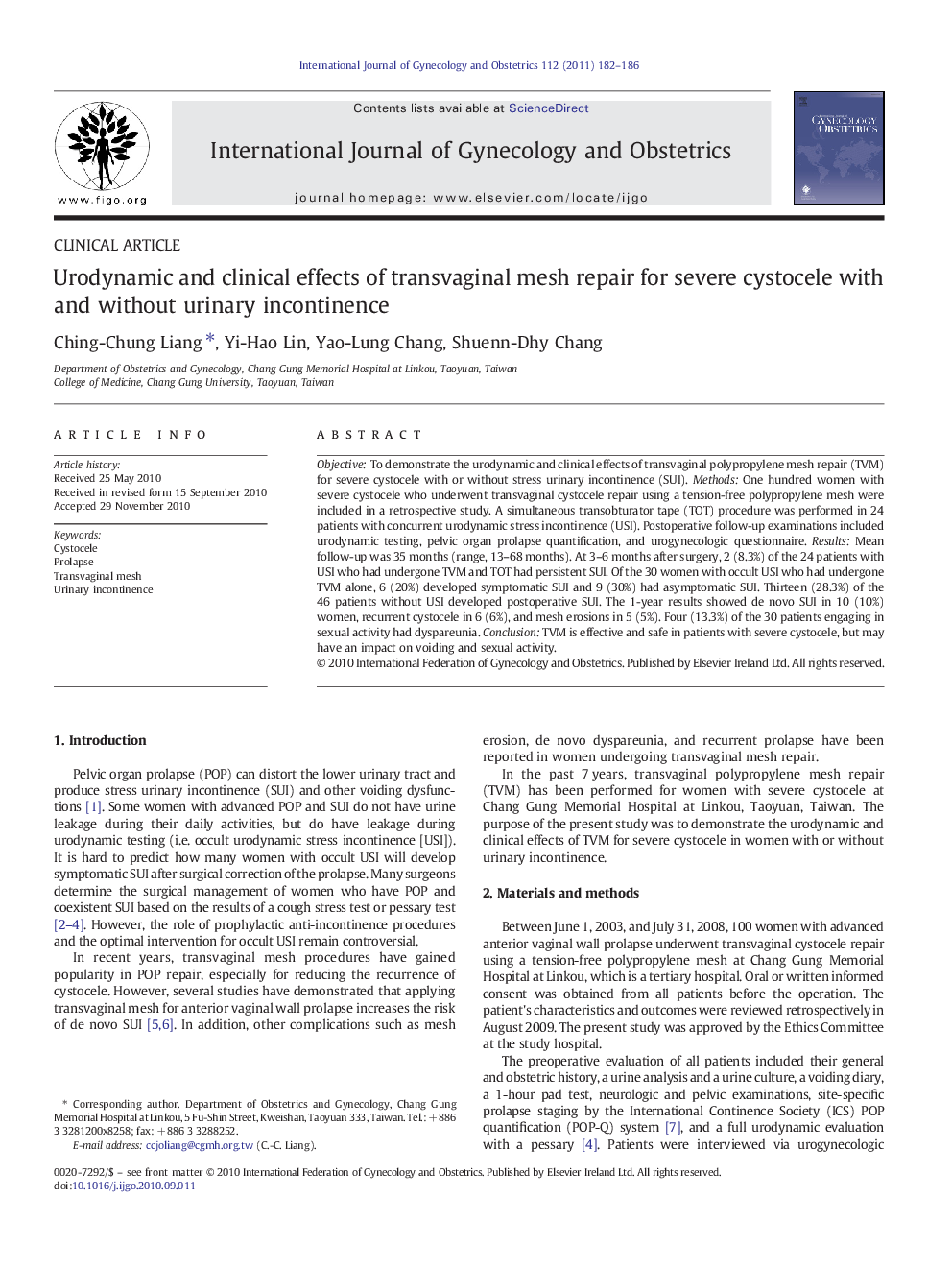| Article ID | Journal | Published Year | Pages | File Type |
|---|---|---|---|---|
| 3954401 | International Journal of Gynecology & Obstetrics | 2011 | 5 Pages |
ObjectiveTo demonstrate the urodynamic and clinical effects of transvaginal polypropylene mesh repair (TVM) for severe cystocele with or without stress urinary incontinence (SUI).MethodsOne hundred women with severe cystocele who underwent transvaginal cystocele repair using a tension-free polypropylene mesh were included in a retrospective study. A simultaneous transobturator tape (TOT) procedure was performed in 24 patients with concurrent urodynamic stress incontinence (USI). Postoperative follow-up examinations included urodynamic testing, pelvic organ prolapse quantification, and urogynecologic questionnaire.ResultsMean follow-up was 35 months (range, 13–68 months). At 3–6 months after surgery, 2 (8.3%) of the 24 patients with USI who had undergone TVM and TOT had persistent SUI. Of the 30 women with occult USI who had undergone TVM alone, 6 (20%) developed symptomatic SUI and 9 (30%) had asymptomatic SUI. Thirteen (28.3%) of the 46 patients without USI developed postoperative SUI. The 1-year results showed de novo SUI in 10 (10%) women, recurrent cystocele in 6 (6%), and mesh erosions in 5 (5%). Four (13.3%) of the 30 patients engaging in sexual activity had dyspareunia.ConclusionTVM is effective and safe in patients with severe cystocele, but may have an impact on voiding and sexual activity.
